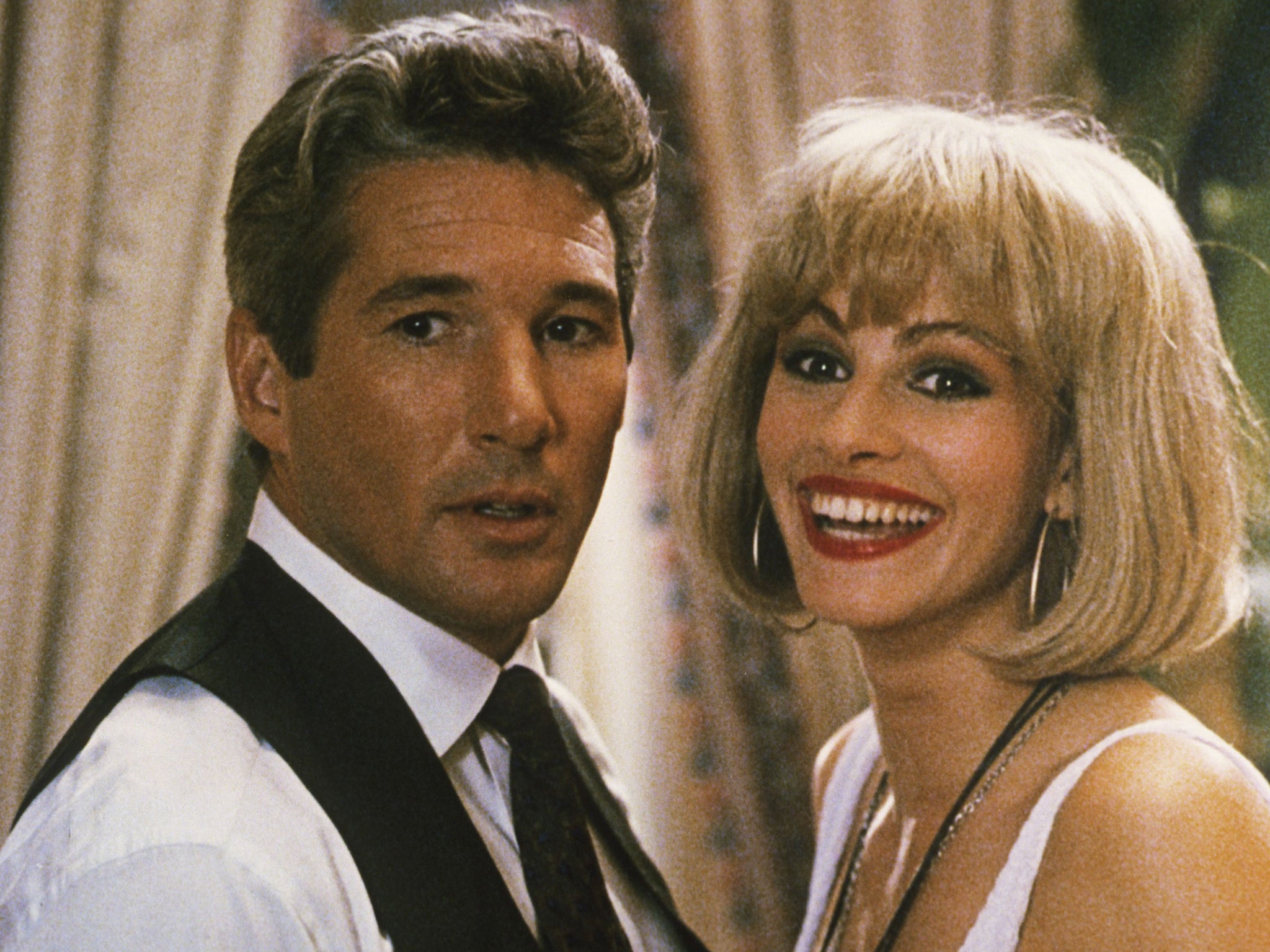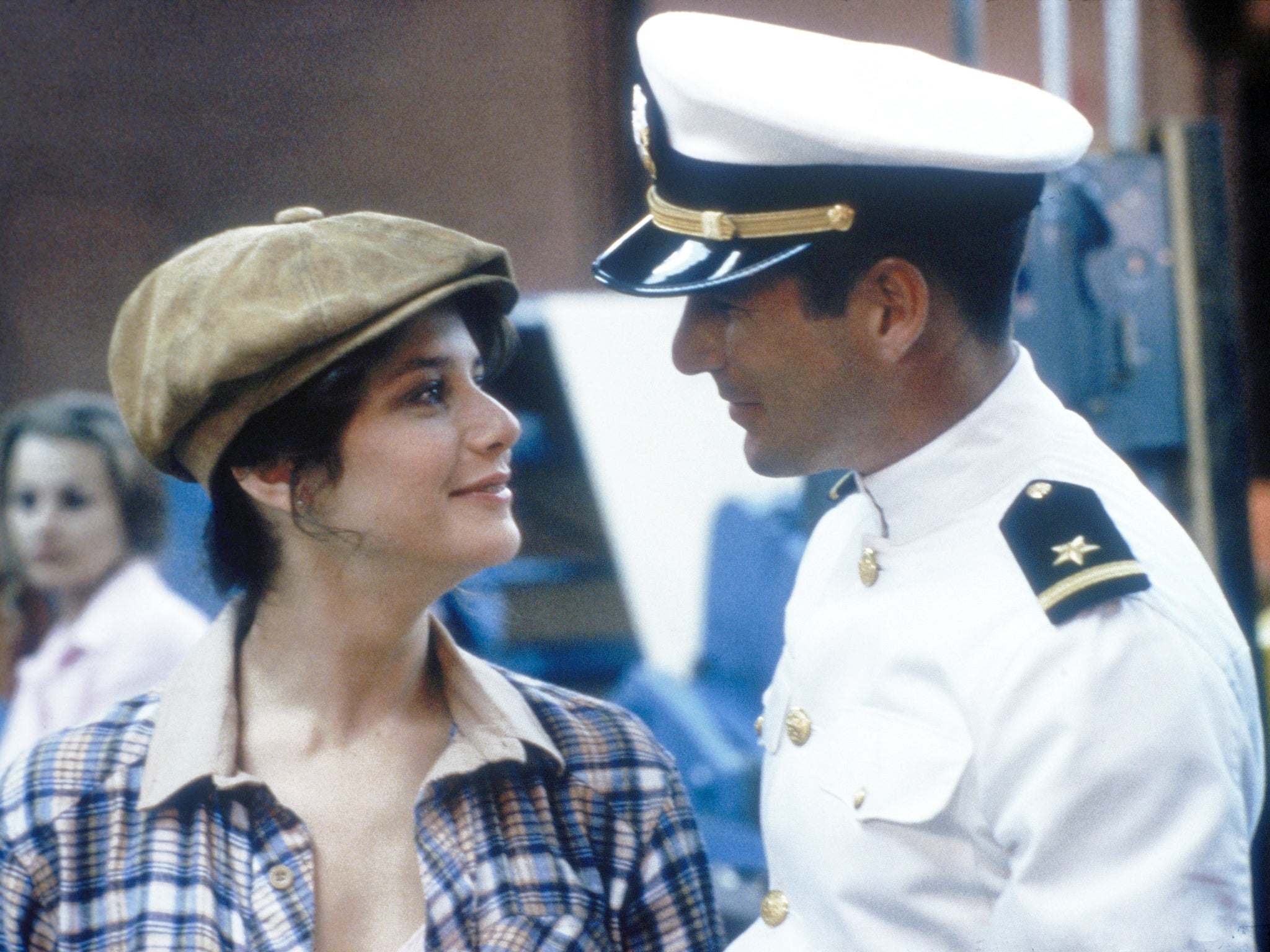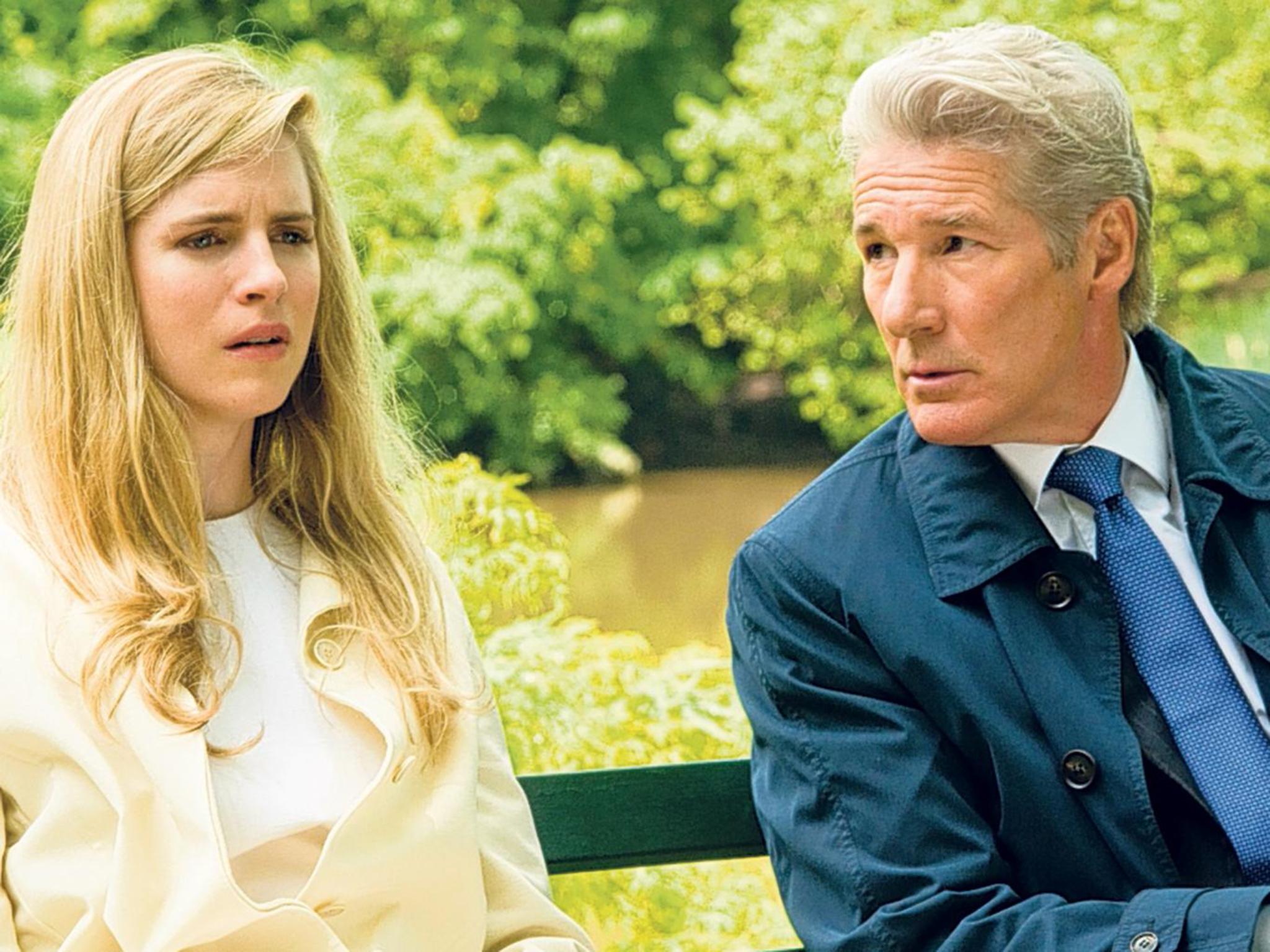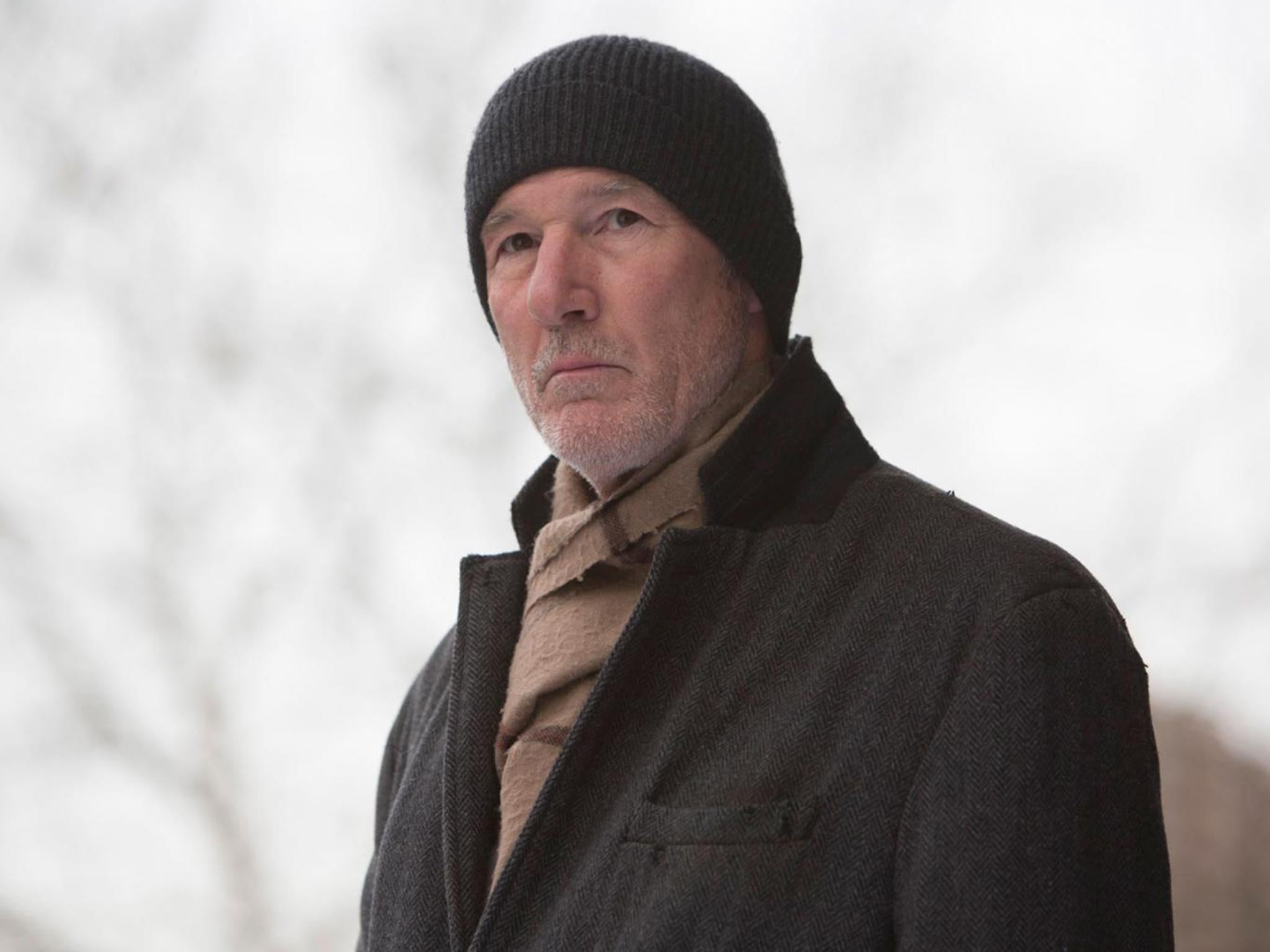Richard Gere interview: My career has never been thought out. I just have always done whatever I wanted
The star of Joseph Cedar’s new film, 'Norman: The Moderate Rise And Tragic Fall Of A New York Fixer' can take more offbeat roles than the heart-throb ones that made him famous

Your support helps us to tell the story
From reproductive rights to climate change to Big Tech, The Independent is on the ground when the story is developing. Whether it's investigating the financials of Elon Musk's pro-Trump PAC or producing our latest documentary, 'The A Word', which shines a light on the American women fighting for reproductive rights, we know how important it is to parse out the facts from the messaging.
At such a critical moment in US history, we need reporters on the ground. Your donation allows us to keep sending journalists to speak to both sides of the story.
The Independent is trusted by Americans across the entire political spectrum. And unlike many other quality news outlets, we choose not to lock Americans out of our reporting and analysis with paywalls. We believe quality journalism should be available to everyone, paid for by those who can afford it.
Your support makes all the difference.Richard Gere isn’t Jewish himself but you wouldn't know that when you watch him in Joseph Cedar’s new film, Norman: The Moderate Rise And Tragic Fall Of A New York Fixer. He plays Norman Oppenheimer, a small-time hustler and political strategist who befriends a low-ranking Israeli politician. Time passes and the politician’s career takes off – and so does that of Norman, at least for a while, as he becomes the politician’s American intermediary. Gere has received exceptional reviews for the film. The New York Times recently wrote he “had never been better” while the LA Times described him as “impeccable.”
The needy Norman is a long way removed from the American Gigolo-type roles that made Gere so famous. “The character was completely unique. I had no idea what I would do with it. That was probably the attraction. I didn’t have a clue how I would play this guy,” Gere reflects. “We spent about eight months, nine months trying to figure this guy out. Joseph [Cedars] made a point of making me aware of and feel the bedrock of where he is coming from – and a lot of that is 2000 years of Jewish history.”
As most profiles of Gere remind us, he’s a descendant of the Mayflower pilgrims. Nonetheless, it wasn’t that much of a stretch to imagine himself into the shoes of Norman Oppenheimer. “Well, I’ve lived in New York since I was 21. The Jewish experience is something that if you live in New York, it’s in your face all the time. You just take it for granted.” If you live in New York, he adds, you are almost bound to have “a Jewish sense of humour.”

“In my memory bank, my experience bank, there are versions of Norman that I’ve know for 45 years.” Gere continues. “You know, spending time in synagogue, understanding much of the cultural psychology of where Jews came from and how they’ve learned to cope in the world was important to me. But, in the end, the reality was that the more questions I asked about the character, the further he was away from me. You can’t find this character rationally. You just have to jump in and do him. That became clear the more I explored him.”
To the outsider, it seems as if Gere is in the Indian summer of his career. As he grows older (he’s now 67) he no longer has to worry about being a heart-throb and starring in movies like Pretty Woman and An Officer And A Gentleman. He can take much more offbeat roles. We’ve seen him in recent years as a homeless man, eking out a perilous existence, in Time Out Of Mind (2014); as a Donald Trump-like hedge fund magnate in Arbitrage (2012); a wealthy but guilt-ridden old man in The Benefactor (2015), and as a smug and self-satisfied politician in The Dinner (2017). Put it to him that it must be liberating to escape the straitjacket of movie stardom and he responds in an indignant fashion.
“My career has never been thought out,” he insists. “I never engineered a career. I just have always done whatever I wanted. You’re restricted by what you’re offered… but the incredible list of brilliant directors and actors and writers I’ve worked with, you know I’m kind of amazed myself that I’ve been able to ride this career this long with such good people.”

Gere has a point. Look through his filmography and you don’t find any superhero movies, franchises or even sequels (unless you count his role in The Second Best Exotic Marigold Hotel.) He was worked with major directors from Richard Brooks to John Schlesinger, from Terrence Malick to Paul Schrader, Francis Ford Coppola and Mike Figgis. Yes, there were the romcoms with Julia Roberts (Pretty Woman and Runaway Bride) and the monster box office hit An Officer And A Gentleman but there has never been any hint that he has appeared in films simply to further his career.
If you want to know what made Gere such an electrifying screen presence early in his career, watch him as Diane Keaton’s charismatic but abusive lover in Richard Brooks’ Looking For Mr Goodbar (1977.) He’s a restless, prowling figure and you can’t take your eyes off him.
“I loved [Richard] Brooks. He was a real character, old Hollywood. He bridged old Hollywood and new Hollywood,” Gere remembers the Looking For Goodbar director. “He was a writer-director-producer, super smart, super energetic. He loved that character and we kept on pushing each other to go further with him.”

Watch Apple TV+ free for 7 days
New subscribers only. £8.99/mo. after free trial. Plan auto-renews until cancelled

Watch Apple TV+ free for 7 days
New subscribers only. £8.99/mo. after free trial. Plan auto-renews until cancelled
Gere credits Brooks (director of In Cold Blood, Elmer Gantry and Cat On A Hot Tin Roof) with teaching him about movie acting. “He was a drill sergeant. My memory was that he was incredibly physical, agile.”
Brooks had written the script for Looking For Mr Goodbar but refused to show it to the actors until shortly before shooting began. “I went over to his house at the appointed time and I was ushered into a room with a tea table and one straight back chair. The script was placed on the tea table. He said ‘you have half an hour.’” Gere started reading and discovered that Brooks had “blacked out everything that wasn’t my character. All I ever saw was what I was in.”

The director warned him that if “you don’t do something new in every scene, [Brooks] is not going to be in the movie.” It’s advice that Gere took to heart as he made sure that he stole every scene in which he appeared. A year after Looking For Mr Goodbar, Gere appeared in arguably the greatest film he has ever made, Terrence Malick’s Days Of Heaven (1978). In the film, set in 1916, he plays a factory worker who flees to rural Texas after killing a man. He works as a farm labourer and pretends that his girlfriend (Brooke Adams) is his sister.
The film is famous for its “magic hour” cinematography of dawns and dusks and the use of natural light by its Director of Photography, Néstor Almendros.
“It’s a beautiful film,” Gere says. “I saw it maybe five years ago in a new 35mm print and I was still very happy with it. Nestor was a complete jewel. He was working with basically a Hollywood crew who didn’t understand him and who wanted to light too much. He was definitely a painter with light.” Malick, meanwhile, was a “brilliant filmmaker, a brilliant thinker,” but nobody ever knew quite what he wanted. “He knows when he sees it but it is very hard for him to explain it.”
Gere points out that it’s “apocryphal” to think that the entire movie was shot at magic hour. “Part of it was shot in Canada and it was late summer, early fall, and so the sun was low on the horizon in any event.” He rhapsodises about the “incredible glow:” given by the film stock. “Kodak 92, I think it was called.”
As for the famous scene when the locusts ravaged the crops, that was filmed backwards. “The locusts (scene) was really funny. You’ve probably heard the story before but we shot it all in reverse. There was a helicopter that dropped kind of nutshells, bean pods, and we walked backwards, there was a tractor that was moving backwards, we had all kinds of visual tricks that we did - and when we reversed the film, it looked as if the things (the locusts) were coming out of the ground.”
Given his method-style intensity, it was a bit of a surprise to see Gere pop up recently as the silver-haired male tottie opposite Judi Dench, Maggie Smith and the other venerable British thespians in The Second Best Exotic Marigold Hotel. It’s revealing that he doesn’t talk about spending eight months preparing for this role. He made the film in between two other projects. “I had maybe two weeks when I could do this…I went to Rajasthan and had a lovely time. All the actors were incredibly embracing and fun to work with.”

Gere is as serious about his politics and humanitarian work as he is about his craft as an actor. Ask him if he thinks movies can help bring about social or political change and he gives an earnest answer. When he agreed to play the homeless man in Time Out Of Mind (which he also produced), he set out not just to make the best movie he could but also to provide practical assistance for people in the same plight as the character he played. He told the UK distributors that it was “really important for me that this movie helps the local homeless groups and is engaged with the local community at the level of funding and taking responsibility for homeless people.”
He went to Glasgow, Dublin and London to attend fundraising screenings for local homeless groups.
Gere suggests that a film like Arbitrage (in which he played the master of the universe-like financier) also had an impact, albeit in a very different way. It provided audiences with an insight into bankers at a time when the financial crisis of 2008 was still fresh in everyone’s minds. “It’s not enough to say bankers are bad, greedy people. They’re human beings also. What is it about them that we can relate to and see in ourselves?”
This prompts a final reflection before the publicist brings the interview to an end. “That’s kind of our objective in making movies,” Gere muses, “(asking) what is the universal human predicament?” It’s a very high-minded definition of the purpose of filmmaking that’s easy to scoff at coming from the star of Pretty Woman but, to his credit, Gere clearly means it. It has never been just about popcorn and box office receipts for him. He still believes in the power of cinema to provoke debate and effect social change – and if it can entertain as well, all the better.
'Norman: The Moderate Rise And Tragic Fall Of A New York Fixer' is released on 9 June
Join our commenting forum
Join thought-provoking conversations, follow other Independent readers and see their replies
Comments